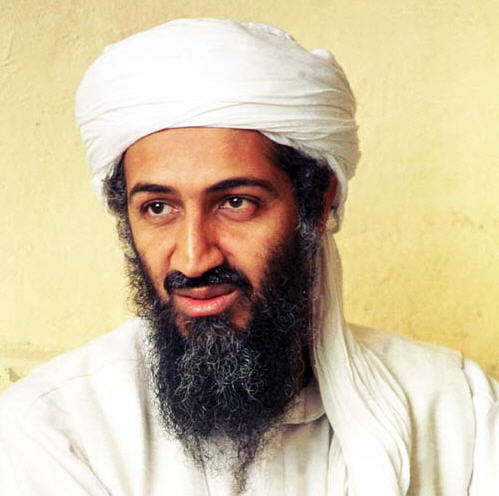
I have just awoken to hear of the death of Osama Bin Laden in Pakistan at the hands of US Special Forces. All one needs to know about Bin Laden’s demise is in that single sentence. There is of course much rejoicing in the US. President Obama has spoken, as has Prime Minister Cameron, for both countries have suffered grievous losses since 911, and made egregious strategic mistakes.
In many ways, it is hard for we Europeans to grasp the enormity of the impact of 911 on the American psyche used as we are to struggle between and within our lands. Living with vulnerability is almost a European way of life. Certainly, Americans have every right to mark this momentous occasion, but none of us must get carried away. To many a terrorist has been served his just deserts; to many others a new martyr has been created. Martyrdom may well serve Al Qaeda well in the short-term, boosting the waning allure of a strange and dangerous interloper into history. We must all be on our guard.
So, what does the death of Bin Laden mean? I am reminded of Winston Churchill in the immediate aftermath of the British victory over Rommel at the Battle of El Alamein in November 1942. Speaking with the growling gravitas that was his power Churchill said, “This may not be the end, this may not be even the beginning of the end, but it is the end of the beginning”.
Two things became rapidly clear in the immediate aftermath of 911. First, the struggle against violent Islamism was going to be long and hard. Second, Afghanistan and Pakistan were the epicentres of struggle. There is nothing in the death of Al Qaeda’s spiritual leader to suggest the first is any less true today than a decade ago. It may however be even harder to galvanise popular public support for the continuing struggle to stabilise Afghanistan and Pakistan in ways other than Islamist.
That said, listening to the BBC this morning there is already a sense of ‘job done’. To some extent that is correct; the West went to Afghanistan in late 2001 to kill Bin Laden. That has now been done. And yet, our understanding of the challenge has evolved so much since the dust of two New York towers and their trapped victims came to rest. Most importantly, the Arab Street seemingly so motivated by Al Qaeda in the early aftermath of 911 seems to have rejected the medievalism and nihilism implicit in the Al Qaeda creed. Both Islam and the word of the Prophet have demonstrated greatness and risen above the strategic sectarianism Bin Laden stood for. Furthermore, whilst the Arab Spring may evince the occasional vein of such sectarianism its message is clear; freedom!
In a sense it is fitting that Bin Laden should die as tumult erupts across the Middle East. Islamism was born in many ways from the failure of Arab nationalism in the wake of the colonial era. Hijacked by the corrupt and self-seeking many Arab states ignored the aspirations of millions of their fellow citizens. Frustrated and with no-one to believe Bin Laden offered the appeal of a false prophet. Today, new belief courses along the highways and bye-ways of the Arab Street. It is belief that for once must be given full chance of expression.
A post-Al Qaeda age is now apparent. However, the job is not done – not in Afghanistan, nor Pakistan, nor Somalia, nor Britain, nor a host of other places. Jihadists will strike back, they will evolve and they will continue to represent a danger to all free-thinking peoples and all right-minded faiths.
In essence the defining struggle of the past decade has been one between the legitimate state and the anti-state. That struggle will continue across much of the world and we in the West must stand ready to side with those committed to the principles of liberty and freedom for which millions aspire. We must also recognize the critical importance of an American-led West as a beacon of hope, just as America must be reminded of its obligation to lead soundly.
In May 1945 upon victory over Nazi Germany Churchill’s voice was almost lost in the wild celebration of the moment. “We may allow ourselves”, he said, “ a brief period of rejoicing; but let us not forget for a moment the toil and efforts that lie ahead…We must now devote all our strength and resources to the completion of our task, both at home and abroad”.
This is indeed only the end of the beginning.
Professor Julian Lindley-French is a member of the Strategic Advisor’s Group of the Atlantic Council, Special Professor of Strategic Studies, University of Leiden, Netherlands and Associate Fellow of the Royal Institute of International Affairs, London. This essay first appeared on his personal blog, Lindley-French’s Blog Blast.
Image: osama-bin-laden-photo-cropped.jpg
